Search Results
Showing results 41 to 60 of 91

Your Energy Needs
Source Institutions
In this activity about the relationship between food and energy (page 8 of PDF), learners estimate average daily baseline energy (Calorie) needs and energy needs for different levels of activity.
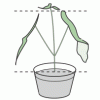
Do Plants Need Light?
Source Institutions
In this food science activity, learners conduct an experiment that demonstrates the importance of light to plants.
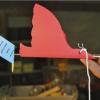
Chirping Bird
Source Institutions
In this activity, learners build a cuica or chirping bird using straw, string, and a bottle cap. Use this activity to explore the interplay of motion and sound.
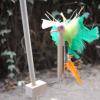
Woodpecker
Source Institutions
In this activity, learners construct a traditional handicraft toy that illustrates a motion commonly associated with violins and earthquakes.

Stabilization Wedges Game
Source Institutions
This game introduces learners to the scale of the greenhouse gas problem, plus technologies that already exist to dramatically reduce our carbon emissions and prevent climate change.
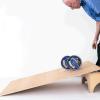
Downhill Race
Source Institutions
In this activity, learners explore how two cylinders that look the same may roll down a ramp at different rates.

Oil Spot Photometer
Source Institutions
In this math activity related to light, learners assemble a photometer and use it to estimate the power output of the Sun.

Rolling Returns
Source Institutions
In this activity, learners build a special rolling can that returns back to you when you push it forward. Use this activity to demonstrate the transfer of energy between kinetic and potential energy.
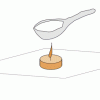
Finding the Carbon in Sugar
Source Institutions
In this activity about combustion and energy, learners observe a burning candle in a sealed jar and the burning of white sugar.
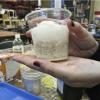
Hot & Cold
Source Institutions
In this activity, learners experiment with hydrogen peroxide, vinegar, yeast, and baking soda to produce hot and cold reactions. Use this activity to demonstrate exothermic and endothermic reactions.
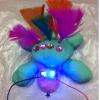
Dough Creatures
Source Institutions
In this technology activity, learners light up the room with electrifying play dough creations. Learners use conductive and insulating homemade play dough to build simple circuits.
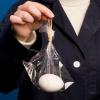
Egg Bungee
Source Institutions
Learners attach an egg to a rubber-band bungee cord and drop the egg.
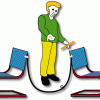
Raceways
Source Institutions
In this activity, learners build a model roller coaster to help the Mummy entertain the Atom's Family monsters. Learners assemble the roller coaster between two chairs using vinyl ceiling molding.
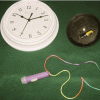
Can Energy be Created or Destroyed?
Source Institutions
In this activity, learners explore conservation of energy by experimenting with a solar cell light device.
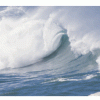
Waves and Tides
Source Institutions
In this 7-10 day investigation, learners develop an understanding of waves and tides and their motion through discussion, demonstration, and hands-on activities.
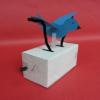
Cranking Bird
Source Institutions
In this activity, learners build a mini crank machine to make a bird "fly." This engineering activity introduces learners to automata, rotational motion, cranks and cams.

Rubber Band Racers
Source Institutions
In this activity, learners explore the design of rubber band powered cars. Learners work in teams of "engineers" to design and build their own rubber band cars out of everyday items.

Breathing Yeasties
Source Institutions
In this life science activity (page 8 of the PDF), learners explore the carbon cycle by mixing yeast, sugar and water.

Water Fountain
Source Institutions
In this activity, learners explore how a hydraulic pump works. Learners work in teams to design and build a unique water fountain that employs a hydraulic pump.
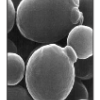
Energy For Life
Source Institutions
In this activity about the relationship between food and energy (page 1 of PDF), learners observe and quantify the growth of yeast when it is given table sugar as a food source.
